Time and time again we hear the importance of drinking more water and staying hydrated.
It is such a widely stated fact that very rarely do people take the time to understand why.
We have answered some of the common questions on the importance of hydration for optimal health.
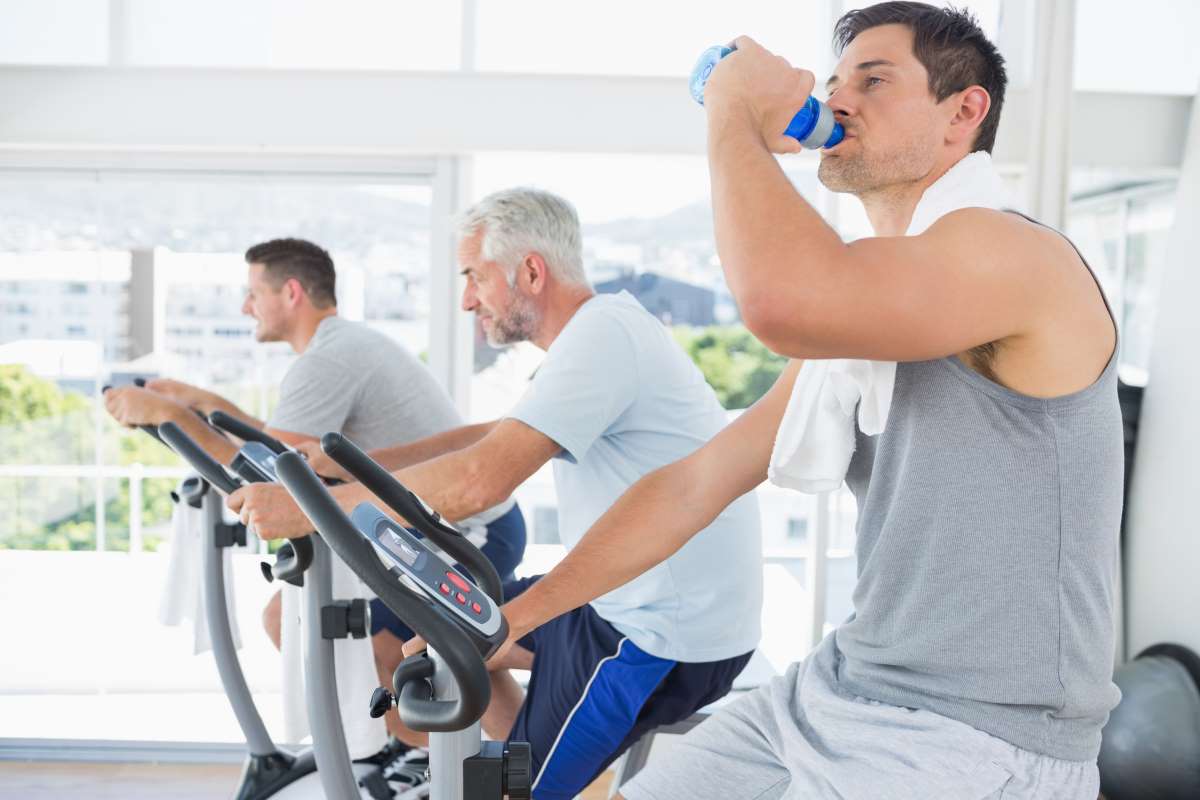
Why is hydration important?
The human body is 60% water, and water plays a key role in every bodily function.
It is essential not just for day-to-day function, but for survival too.
To neglect hydration is to neglect your health.
Water, or H2O, facilitates almost all chemical reactions within the body including:
1. Regulation of body temperature
Your body releases heat by expanding the blood vessels close to the skin’s surface. This is why your face goes red when performing intense exercise. This results in increased blood flow and more heat dissipating.
If you are dehydrated your internal body temperature increases. This causes your blood vessels to widen and you feel hotter. You may also fatigue faster.
2. Joint lubrication
Water aids joint lubrication and helps their movement and mobility. The synovial fluid that lubricates joints is made primarily of water.
If you are chronically dehydrated, this could lead to joint pain while training.
3. Prevents infections
Good hydration can prevent and limit infections. This includes urinary tract infections, kidney stones, ulcers, headaches, skin conditions and constipation.
4. Delivery of nutrients to cells
Water is critical to cell homeostasis. It transports nutrients to cells and helps with the removal of waste products.
Water is also essential for muscles. The delivery of nutrients from food is a key part of growth and recovery. If water levels are too low this will not occur.
This results in poorer performance, cramping and lower levels of muscle growth.
5. Sleep quality
Poor hydration causes the mouth and nasal passages to dry out. This can create issues with snoring, a blocked nose and sore throat, adding to sleeping issues.
6. Cognition and mood
Even mild dehydration can lead to a significant impairments in cognitive function (alertness, concentration, short-term memory) and physical performance (endurance, sports skills).
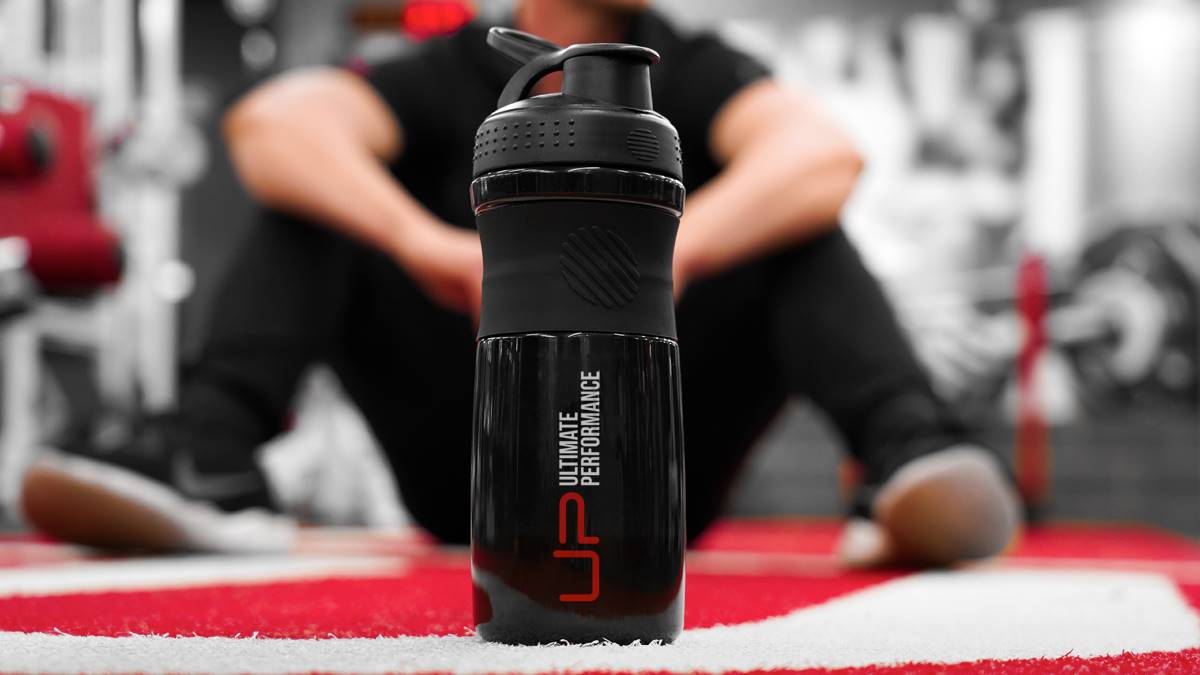
What are the risks of dehydration?
Hydration is particularly important in exercise. As much as one-two litres an hour can be lost through sweating and breathing. This fluid needs replacing, or you risk dehydration.
Adequate fluid intake also fuels your muscles and fends off any cramps. Therefore, hydration is invaluable before, during and after exercise for optimal performance.
How much do I need to drink to be hydrated?
The blanket statement that you should drink 8oz (roughly 2.3L) of fluids does not match the current daily recommendations.
This is a good start but the official guidelines are 3.7 litres per day for men and 2.7 litres for women. These recommendations are broad and just a guideline.
In actual fact, your fluid requirements vary based on the following factors:
- Weight, height and body composition.
- Environment – you sweat more and lose more fluid in hot, humid conditions than cold, dry ones.
- Exercise intensity – the harder the exercise, the more you sweat.
A more accurate way to calculate your water target is to aim for around one litre for every 25kg of body weight.
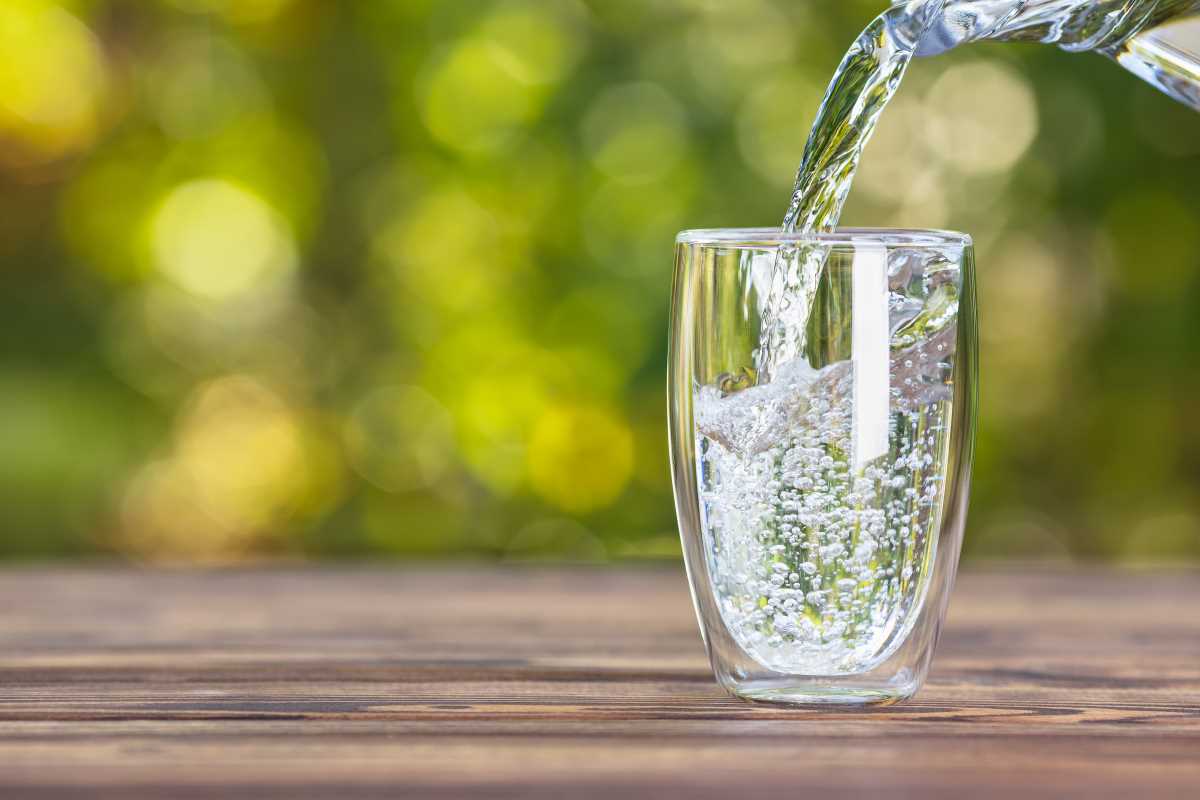
What is hyperhydration?
Depending on many factors, 1.5-2 litres a day may, in fact, be too little for some people who regularly and intensely exercise.
Hyperhydration might be a consideration in these circumstances. This is an avenue fully explored by U.P. founder Nick Mitchell in a separate blog.
What should I drink to avoid dehydration?
You don’t need to rely on water alone to meet your fluid needs. Many fruits and vegetables are high in water content. For example, watermelon and spinach can contribute significantly.
Drinks containing calories, especially those that are high in electrolytes slow down the transit of the fluids through the body. This provides more opportunity for them to be absorbed and retained.
The beverage hydration index demonstrates how hydrating different fluids are, based on how well we retain them.
Sports drinks are useful for people doing high intensity, vigorous exercise. However, you should be mindful and limit them due to their high sugar and calorie content.
Some fluids are diuretics, meaning they increase the amount of water and salt expelled from the body. Caffeine and alcohol are obvious examples.
The amount of diuretic effect you get from these types of drinks depends largely on how much you consume. For example, a double espresso will have a far greater diuretic effect than a cup of tea with milk. The addition of the milk will increase how much fluid we retain.

How do I know If I am drinking enough water?
The quickest way to tell if you’re drinking enough is to check the colour of your urine.
If the colour matches the first three on the chart, you are well hydrated. Any higher than number five, you are dehydrated.
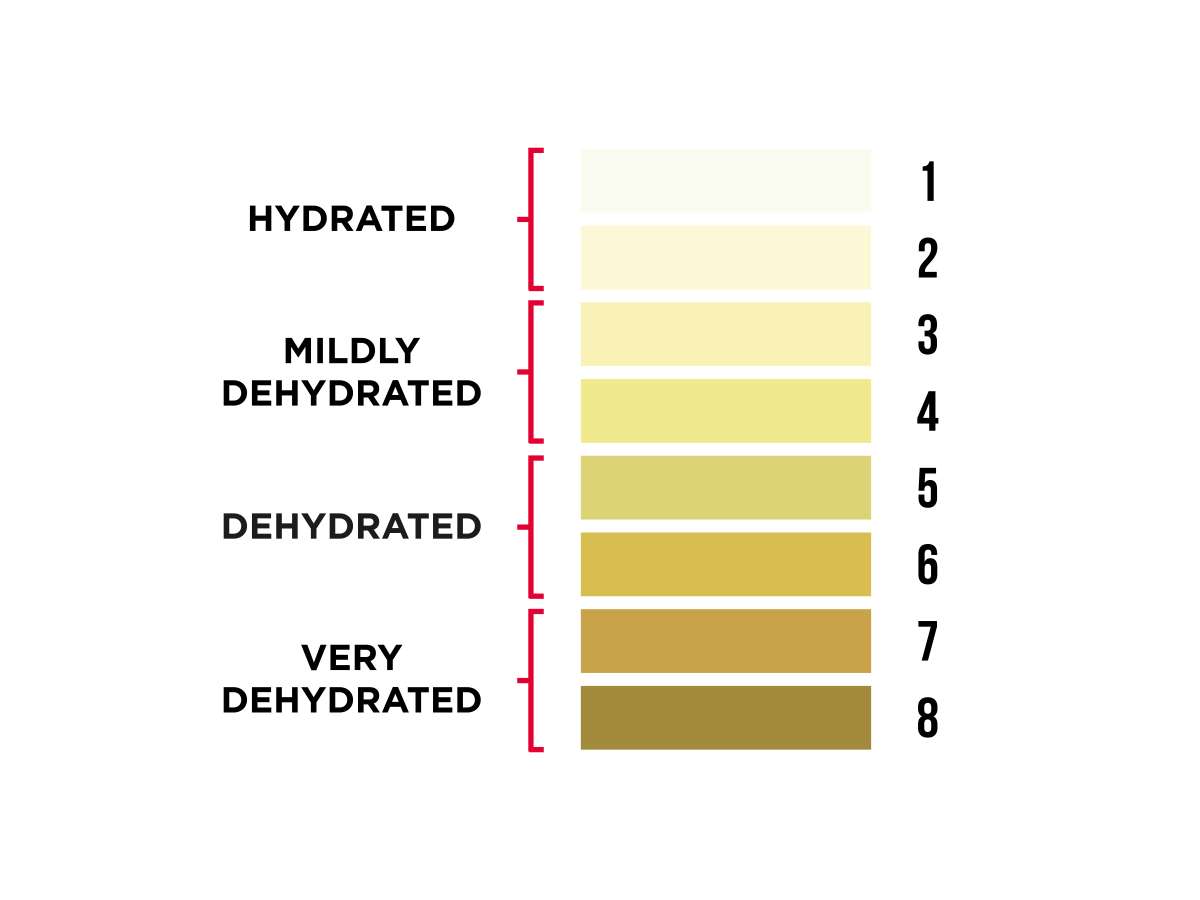
There are also a number of dehydration symptoms to watch out for beyond natural thirst:
- Pain when urinating
- Dry mouth, lips or eyes
- Dizziness
- Headaches
- Tiredness
- Difficulty concentrating
Can you drink too much water?
There are instances where you can drink too much water and become overhydrated. Overhydration can result in low sodium levels in your blood. This can be dangerous because sodium helps to control blood volume and blood pressure. Sodium is also important for muscle and nerve function.
The average healthy person is at extremely low risk of overhydration. Athletes tend to be at the highest risk, for example, endurance runners who sometimes drink too much water before and during a marathon.
Overhydration can also lead to hyponatremia, where your sodium levels become dangerously low.
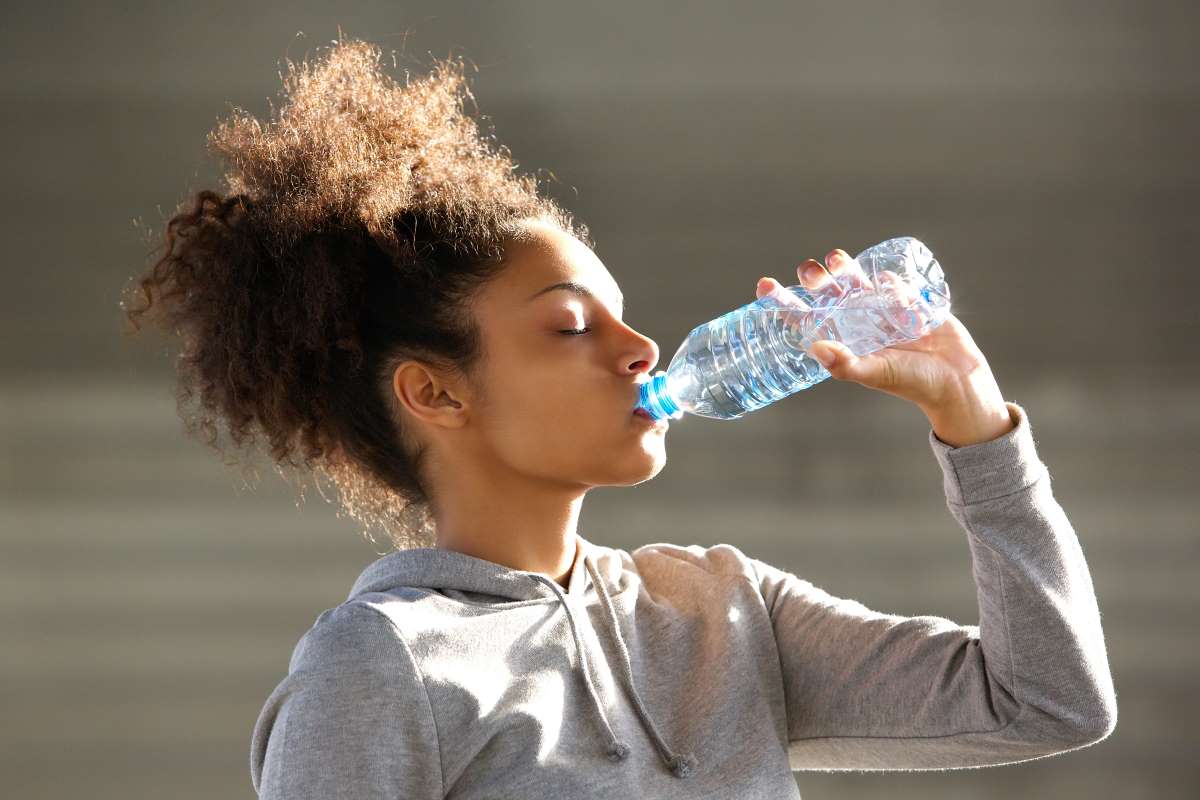
Key takeaways on staying hydrated
- Hydration is important for day-to-day functioning and to replace fluids lost through exercise
- Daily fluid intake needs will vary depending on various factors. This includes a person’s weight, height, body composition.
- It is best to stay hydrated with water, not caffeine, fruit juices or fizzy drinks.
- Stay on top of your hydration levels by analysing the colour of your urine. The lighter it is, the more hydrated you are
There are many misconceptions about the importance of drinking water and what you need to do to avoid dehydration.



